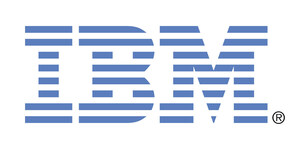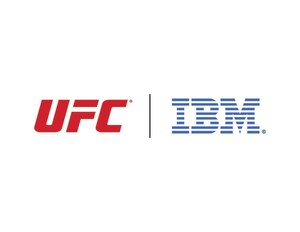ARMONK, N.Y., Feb. 18, 2011 /PRNewswire/ -- Watson wasn't the only computer system that won this week when it competed successfully against two human champions on the Jeopardy! game show.
(Logo: http://photos.prnewswire.com/prnh/20090416/IBMLOGO)
The other computing system is called World Community Grid, a virtual supercomputer that helps scientists solve humanitarian challenges by tapping the unused computing power of personal computers around the world. Scientists who use World Community Grid are not only set to receive $500,000 in prize money -- but are already earning unprecedented support worldwide: The day after the tournament's conclusion, World Community Grid saw a 700% spike in the number of people who normally volunteer their computers' spare power for the effort.
World Community Grid, an initiative of the IBM International Foundation, has created the equivalent of one of the world's largest virtual supercomputers designed to tackle projects that benefit humanity, such as new treatments for HIV/AIDS, cancer research, and affordable water purification. World Community Grid works by pooling the unused power of 1.7 million personal computers from 535,000 volunteers in more than 80 countries. It then makes this computational power available for scientists who might not otherwise be able to afford the high speed computing they require for timely research.
World Community Grid users have benefited greatly from this public resource. For instance, Scripps Research Institute tapped World Community Grid to discover two new compounds that can potentially be used to design AIDS-fighting drugs. Individuals donate time on their computers for these and many other humanitarian projects by registering on www.worldcommunitygrid.org, and installing a free, unobtrusive and secure software program on their computers running Microsoft Windows, Macintosh or Linux operating systems.
"Watson's performance on Jeopardy! has captured the imagination of millions of viewers who understand the power of computing to benefit humanity," said Stanley S. Litow, IBM vice president of Corporate Citizenship & Corporate Affairs, and President of IBM's Foundation. "Like Watson, World Community Grid is also a game changer. We're grateful for the skyrocketing interest in World Community Grid as a result of Watson's achievement."
The $500,000 prize money designated for World Community Grid is being sent directly to research scientists heading up projects that use World Community Grid for its speedy computational power. The grants are being allocated based on detailed proposals submitted by the respective project teams.
The recipients are:
- Help Fight Childhood Cancer: Chiba Cancer Center Research Institute & Chiba University / Japan
- Discovering Dengue Drugs - Together: University Texas Medical Branch & University of Chicago / USA
- FightAIDS@Home: Scripps Research Institute / USA
- Computing for Clean Water: Tsinghua University / China
- Help Defeat Cancer: Cancer Institute of New Jersey, Rutgers University & University of Pennsylvania / USA
- Help Conquer Cancer: Ontario Cancer Institute / Canada
Additional funding for these initiatives will allow teams to further accelerate their research, test hypotheses and perform the work needed to eventually produce tangible results, such as vaccines and treatments.
One additional grant will be provided to the University of California, Berkeley for its "BOINC operating system" -- software that runs public, volunteer-based computing efforts such as World Community Grid. An additional grant will fund a new project to fight malaria, run by Scripps Research Institute in the United States.
To put its size, power and scope and contributions into perspective, World Community Grid:
- Receives seven computational results from volunteers' PCs every second of the day -- 500,000,000 in all since World Community Grid started six years ago
- Has performed computations for the equivalent of 392,000 years
- Has yielded 31 scientific, peer-reviewed published papers
- Performs computation for projects run by academic and research organizations on nearly every continent
- Consumes only three extra watts of power on the average computer -- less than half used by a seven-watt nightlight
- Performs 400 trillion floating-point operations per second
Watson, named after IBM founder Thomas J. Watson, was built by a team of IBM scientists who set out to accomplish a grand challenge – build a computing system that rivals a human's ability to answer questions posed in natural language with speed, accuracy and confidence. For more information, please visit www.ibmwatson.com.
IBM (NYSE: IBM) has been a leader in corporate social responsibility and corporate citizenship for 100 years. IBM puts initiatives intro place that address vital issues, such as the environment, community economic development, education, health, literacy, language, and culture. To learn more about IBM's corporate citizenship initiatives, please visit: http://www.ibm.com/blogs/citizen-ibm.
CONTACT: |
|
Ari Fishkind |
|
IBM |
|
914-499-6420 |
|
SOURCE IBM
WANT YOUR COMPANY'S NEWS FEATURED ON PRNEWSWIRE.COM?
Newsrooms &
Influencers
Digital Media
Outlets
Journalists
Opted In





Share this article